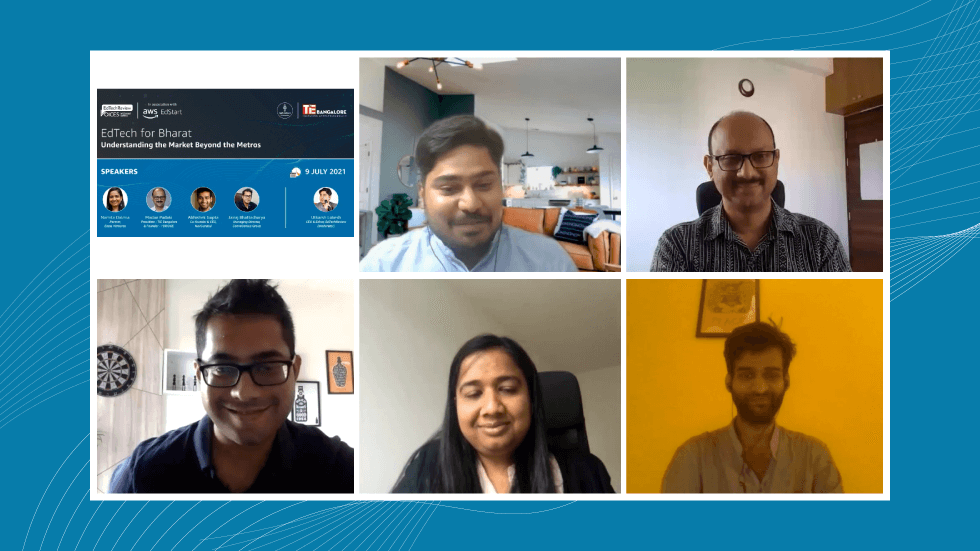The Indian education market is forecasted to reach US $225 billion by the fiscal year 2025. While India’s EdTech market is expected to reach US $3.5 billion by 2022 and US$10.4 billion by 2025 in comparison to US$2.8 billion in 2020.
In 2020 alone, Indian EdTech start-ups received a total of US$2.22 billion, up from US$553 million in 2019. Needless to mention, it presents a lucrative opportunity for monetization.
However, there has always been a significant gap in learning levels due to monetary, social, and geographic factors in Tier I, Tier II, Tier III cities, and beyond. As a result, the country has been missing out on its untapped human capital from the non-metro cities.
Community Poll
Focusing on the EdTech landscape, the recent webinar EdTech for Bharat: Understanding the Market Beyond the Metros highlighted the challenges and opportunities an EdTech startup may encounter and answered some of the major concerns in the EdTech industry.
The speakers shared their journey from being newbies to EdTech industry veterans and what the future holds in the webinar.
Powered by AWS, the EdTech for Bharat: Understanding the Market Beyond the Metros was moderated by Utkarsh Lokesh (CEO & Editor, EdTech Review) and joined by experts like Namita Dalmia (Partner, Enzia Venture), Madan Padaki (President- TiE Bangalore and Founder -1BRIDGE), Abhishek Gupta (Co-Founder and CEO, NavGurukul), and Jairaj Bhattacharya (Managing Director, ConveGenius Group)
Utkarsh Lokesh, the moderator, began the webinar by asking Namita Dalmia how she and her organization, Enzia, see the EdTech landscape. Where does she think Indian EdTech has reached? How big is the opportunity beyond metros?
Namita Dalmia (Partner, Enzia Venture), sharing her experience in the EdTech space, said, “in 13 years, EdTech has evolved tremendously in all perspectives. From unicorns to new startups, revenues, customers, everything has improved. However, this is just the tip of the iceberg; there are still many challenges and opportunities ahead.”
Namita also said that education in its more accurate sense is about achieving academic excellence and productivity in life and developing interests, hobbies that contribute to an individual’s success.
“We are yet to tap into the true potential of the Indian EdTech market as we are currently focused on the metros,” Namita added. “A layer of diversity needs to be added for better outcomes; e.g., we need to reach out to vernacular regions. There are gaps in formal and informal schools; those spaces need to be filled.”
